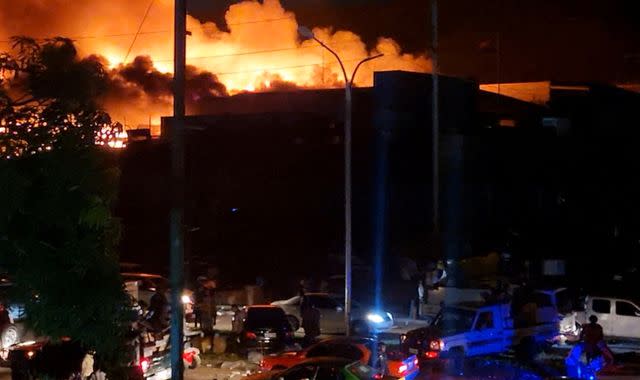State of emergency declared after rioting and looting kills 16 in Papua New Guinea

A state of emergency has been declared in Papua New Guinea after at least 16 people were killed during rioting and looting.
The prime minister James Marape declared the state of emergency on Thursday and announced he had suspended the country's chief of police as well as top bureaucrats in the finance and treasury departments.
The violence began in the capital, Port Moresby, on Wednesday after hundreds of police, soldiers, prison staff and other workers walked out due to missing pay.
The government blamed it on an administrative error and denied a new tax had been imposed.
Shops and businesses were vandalised and set on fire in the two biggest cities, with people grabbing goods from smashed-up stores.
Officials said 180 police were being moved to Port Moresby from regional areas to regain control.
The Australian Broadcasting Corporation reported at least 15 people had died in the capital and Lae, the second-biggest city.
Firefighters were also threatened and the guard house at parliament was burned, according to the PNG Post Courier newspaper.
"We have seen unprecedented level of strife in our city, something that has never happened before in the history of our city and our country," said the capital's district governor Powes Parkop.
"Some people sadly lost their life today," he added.
Mr Marape said on Thursday that Port Moresby was under "stress and duress" but that things were calming down.
Read more from Sky News:
Ecuador streets deserted amid 'state of war'
Western forces appear to be readying for Houthi strikes
The country - about 100 miles from the northern tip of Australia - has seen an increase in violent crime over the last year, with tensions over the increased cost of living and high unemployment.
Mr Marape is aiming to improve security to help get more foreign investment in its growing gold and copper sector.
Papua New Guinea also struggles with unrest and tribal violence in remote regions and wants to eventually boost police numbers from 6,000 to 26,000.


